Kate Bowler: I’m Kate Bowler, and this is Everything Happens. I’m a historian, author, aggressively, fast walker. But lately, in a world that promises endless progress, even now in a pandemic, I realized I just need to be a person. It’s hard to give up on the feeling that the life you want is just out of reach. If only you tried to eat this food, find that relationship, just get the kids graduated or the parents this kind of care. Only then will I feel different, better, whole. But that’s not the way this works. When I was 35, I was diagnosed with stage four cancer. And here’s the very fun thing about that. The world loves you better when you are shiny, when you are cheerful, when you still believe that your best life now is right around the corner. I’ve written multiple books on the history of the idea that you can always fix your life. So I’m going to be the one to say it. There are some things we can change and some things we can’t. And it’s OK that life isn’t always getting better. We can have beauty and meaning, community and love, and we will need each other if we’re going to tell the truth. Life is a chronic condition and there’s no cure for being human.
Kate: Hello, my dears, from another day in Canadian quarantine, where once again, things are locking down and lives are shrinking and everything is hard, and here I am trying to teach my son how to read. Why does the letter Y make so many different sounds? Our lives are constantly being undone. Nothing is consistent. Everything is in flux. We are cruise directors and work from home managers and crisis counselors. And why is sharing such a small space so difficult livres and the kind of people who worry about when they can see their parents and grandparents again? How can we lean into that kind of uncertainty instead of away from it? Today’s episode is exactly what we all need when life is in constant change. Oh, and if you listen until the very end, you’ll hear an extra special announcement I have for you all. I am so excited about it. Stay tuned. Adam Grant is an organizational psychologist and Ted Speaker who helps people find meaning and motivation at work. He’s also a professor at the Wharton School at the University of Pennsylvania, and his books have sold millions of copies, Give and Take, Originals, Option B, which has been in Everything Happens Book Club Pick and it is so helpful for navigating grief. I hope you’ll read it. And his latest book, Think Again The Power of Knowing What You Don’t Know. Adam, I’m so grateful to be talking with you, my friend. Thanks for doing this.
Adam Grant: The gratitude is all mine, Kate. Glad to be here.
Kate: One of my research interests is certainty and your book really comes out swinging against it in the very best way. You argue that we need to question our beliefs more readily than ever before. Why is that?
Adam: Well, I hope I did it with a little bit of uncertainty, which was a little bit of a tight rope walk, but I think the main reason is the world is changing faster. I think, you know, if you lived a thousand years ago, you could basically stick to the same beliefs throughout your life and you’d be OK. Whereas now with an accelerating pace of change, the longer it takes you to admit that you were wrong, the more wrong you become. And I think that’s a dangerous place to live. Right. It might mean that you’re you’re an expert for a world that doesn’t exist anymore. It might mean that you’re clinging to opinions that are just out of date. And it’s it’s interesting to me that with the trivial things, we’re very quick to rethink. Right. So, you know, you refresh your wardrobe, you renovate your kitchen. But when it comes to knowledge and opinions and assumptions where we should be more motivated to rethink because they’re much more consequential, that’s when we really stick to our guns or maybe our gun bans, depending on where we fall on that spectrum.
Kate: I feel like you’re calling at least when I read your book, I felt kind of called to rethink the kind of self that we need to cultivate. What kind of mental mode does it require to to be a rethinker?
Adam: Well, I want to talk to you about this, because I was a lot of my thinking was informed by this brilliant paper that Phil Tetlock wrote about how we get stuck too often in the mode of preachers, prosecutors and politicians. As Phil described it, when you’re in preacher mode, you’re trying to defend your sacred beliefs and proselytize them. When you’re in prosecutor mode, you’re trying to win an argument and prove your case. And if you stop there, I worry that when we’re preaching and prosecuting, we don’t do enough rethinking because I’ve already decided I’m right and you’re wrong. And then in politician mode, we sound a little bit more flexible, but what we’re doing as politicians is we’re trying to win the approval of an audience and we’re doing all this campaigning and lobbying. And we might tell that audience what they want to hear, but we’re probably not changing what we really think deep down. And that scares me. So my favorite alternative is to think like a scientist. And I don’t mean you need to go and buy a microscope or a telescope. Right. To me, thinking like a scientist means you value humility over pride and curiosity over a conviction that you don’t let your ideas become your identity, that you look for reasons why you might be wrong, not just why you must be right. You listen to ideas that make you think hard, not just the ones that make you feel good. And you surround yourself with people who challenge your thought process, not just the ones who agree with your conclusions.
Kate: I thought in supporting your your argument for a scientific mode, I enjoy your stance on how you could be, you know, being smart doesn’t help you be the kind of person who rethinks as people in universities, we, I’m just thinking of faculty meetings right now, like it doesn’t necessarily being really smart doesn’t necessarily make you a rethinker, also just claiming that you’re not biased also doesn’t make you a rethinker.
Adam: Yeah, I think sometimes it goes even further, right. That being good at thinking can make you worse at rethinking, because the smarter you are, the more reasons you can find to support what you already want to believe. But Kate, I want to talk to you about this this framework, because I think you have this interesting dual identity, right? You’re part scientist, but you might be part preacher.
Kate: I’m one hundred percent. I kept thinking when I was reading your book, I was like, I am a preacher because I do believe one of the great joys for me of being a historian and developing a world view is that I get to make constant adjudications of like, oh, this is better, oh, this is worse. And and some of the tools that have served me well, I think are in the kind of renegotiation mode that you’re describing, just being able to pick things up and learning to let things go. But I guess I am really well, we might agree on this. I am really hoping, like in theological language, we talk about it like sanctification, like we can move toward being better and and being changed, being constantly reformed. And my version would include, like I’m hoping God will do a lot of the work. But knowing that community is mostly actually what helps us see the truth, we’re clearly like, if it was up to me, I would probably like Adam, It’s going to be almost impossible for me to revisit stuff I just like decided on unless somebody really honest and lovely, like, shoves it in my face and tells me.
Adam: So I think that’s compelling, right? I think that I don’t I don’t have any problem with people who think like scientists. And then sometimes will talk like preachers to spread their ideas. Right. Because they they’ve done a lot of rethinking and now they’re trying to they’re trying to help people question their assumptions. Where I get worried is when you don’t show your work right. Not you. But when we, when I, when I don’t explain ok here’s my logic, here’s my evidence. Here’s why I rethought that and why I think you might want to as well. Or when people speak with so much certainty that there’s no room to, you know, to experience any doubt. And I keep thinking about mental time travel and how if we lived in the seventeen hundreds, we would believe a lot of crazy things. And I wonder what the people of a century and two centuries ahead of us are going to laugh at us for believing. And don’t we want to not be laughed at?
Kate: It’s true. One of the things I’ve learned most from interviewing preachers is that they say that when they begin a really good sermon, they feel like they’ve opened up a conversation. And because it’s like a divine human thing, they’re like, I begin it, I begin a conversation, and then I just watch the Holy Spirit bump around. And if you always listen to their prayers right before their always like, please, God, take away all the crap that I’m going to say that isn’t true. I find that to be the funniest kind of prayer.
Adam: Wait, I’ve never I’ve never heard that part of the prayer where have you been hiding this?
Kate: They’re like begging, begging before the start of the sermon. They’re like, please help all the terrible things to go away. But one thing I think that we both really have deep hope for is the nature of vocation, is that in work we find like a richness that helps us match up our gifts with the gifts of the world. And like vocation language is such a powerful way of like changing along the way. Where, you’re like you find something in yourself that you realize is maybe special about your, you know, talents, that you see it match up and then you begin to if you’re doing it right, I hope your gifts begin to unfold in light of service I think.
Adam: I have been rethinking this recently. I think you’re onto something. I think that, you know, there’s there’s this really interesting stream of research on having a calling toward work that my friend and colleague Amy Wrzesniewski at Yale, who has been doing. Brilliant work on this topic has spearheaded and she distinguishes having a calling, she separates it from thinking about your work more as a job or a career. And there’s this interesting trend where the idea of a calling has become secularized, right? You know, if you go back half a millennium, it was very much about sort of figuring out how God’s gifts can, you know, can help you serve. And now it’s about I need to pursue my passion and be my authentic self and love my work. And so, no, I think being a callng was actually answering a call from someone in need. Right. And so I love your point that a vocation is about what you have to contribute, not maximizing the bliss of your own experience.
Kate: Well, it does feel very dialogical. I think you’re right, because you’re right. Like service without joy, like your motivation fizzles out. I mean, so many of the people who listen to this podcast have these really rich reasons for why they went into service. And then especially in light of, you know, the pandemic and the overwhelming exhaustion of our moment, it’s so easy both to lose our reasons in light of the call or the call might have the reasons. So, yeah, I think I think both always feel like they’re in conversation with each other.
Kate: When I thought about what the goal was for the having an Everything Happens project and having this podcast was, that would seem to me that one of the goals should be humility. You give a great pitch for humility in your book. I want to hear it.
Adam: Well, I think people misunderstand humility. I hear in particular, a lot of leaders say, well, no, you can’t be humble as a leader because then you’re going to have low self-esteem and you’re going to become too meek. No, the Latin roots of humility translate to from the Earth. It’s about being grounded, recognizing you’re human, you’re fallible. Right? You have you may have strengths, but you have a lot of weaknesses, too. And I think that if you can’t recognize that, then you really can’t grow as a person or as a leader. Right. It’s impossible to learn if you’re unable to admit that you have something to learn. And so I guess what I’m looking for is a particular type of humility, which is something that I’ve come to think of as confident humility, which is being secure enough in your own ego to acknowledge the things that you don’t know. And if you can do that, then you become a lifelong learner and you soak up expertise and information from every person you meet.
Kate: That’s actually one of the things you very lovingly called me on very early on in our friendship.
Adam: Oh you were too self-deprecating. I remember this. You were like, I’m not worthy. I have the intelligence of of an amoeba. I’m not sure why anyone would ever want to listen to me. Like, come on. Come on. You’re so smart. You’re such a clear and dynamic and inspiring communicator. You have to know that by now
Kate: That makes me uncomfortable. But I do think it is so easy to confuse humility with self negation, and it is hard to find that kind of grounding you’re talking about where we have enough resources to move against the grain of our culture’s hyper instrumentalization. It’s kind of exhausting utilitarianism. I don’t know. I guess when I think about the confident humility you’re describing, it kind of it made me think of like, how do we transform our learning, our love ourselves? Like, how do we translate that into service? And then the desire to do that seems like the like embodies something that you’re describing in humility.
Adam: Yeah, I think so too. I think it’s, for a lot of people, it’s not that motivating to see all their flaws. Somebody holds up a perfect mirror and you probably won’t like you’re reflection that much. And if it’s just about you, like no, it’s probably a little bit easier to just say, all right, I’m good enough. I’d rather not confront this image that often. But if you’re thinking about what you can do for others and who’s depending on you, then all of a sudden it’s not about your own ego. Right. It’s about saying, OK, can I can I get out of the mode of trying to prove myself and into the mode of trying to improve myself? And I’m doing that because I’m not here to to try to convince anyone I’m the best. I’m trying to help other people get better. And the only way I can do that is to make myself better. And I think there’s there’s a sense in which it’s it’s much easier to recognize your own limitations and then want to overcome them if that’s going to help other people.
Kate: Yeah, but our culture has such a weird relationship with certainty. You describe really beautifully the kind of extremes on either end that we have when we’re just not sure how much certainty or confidence to project. Would you mind walking me through both. You call them like the armchair quarterback and the imposter?
Adam: Yeah, I think these are these are both deadly in different ways. So the armchair quarterback syndrome is the the thing that I see all the time when, you know, when sports fans get together, which is the sports fan who knows the least about football, is the one who’s most likely to be screaming at the coach for calling the wrong plays. Right. And that’s where confidence exceeds competence. Imposter syndrome is the opposite. It’s where your level of confidence is below your competence. And if you actually have that as a syndrome, then you carry around this chronic sense that you’re a fraud, that everyone’s going to find out you don’t deserve your achievements and that can be debilitating and prevent you from from really trying anything, let alone rethinking. And the armchair quarterback syndrome, if you get stuck there, you already know what you’re doing. Why would you ever doubt or question yourself? So there’s not a lot of rethinking there either. And I think we we need to find a sweet spot there, which is different from what I thought it was going to be when I started exploring it.
Kate: No, you’re asking for more mental flexibility than that and like almost like a like a cultivated agnosticism toward the ability to actually ever know whether you’re calibrating that right. Am I right?
Adam: Yeah. Which means I think by default, your confidence is going to hover a little bit below your competence, or at least you’re going to on an ongoing basis question your self or doubt some of your your knowledge and skills, and I think I think that’s a healthy thing. We had a doctoral student, Basima Tewfik, who’s now an MIT professor, and she started doing research on imposter syndrome. And at some point it dawned on me, why do we have to make this into a big syndrome? It’s not always a chronic disease, right? Yes, there are people who suffer from the syndrome, but much more common is the everyday bouts. The oh-oh, what if Kate asks me a question that I’m not prepared to answer?
Kate: Yeah, I actually have these charts prepared that I really need you to respond to in real time.
Adam: I’m ready. I’m ready to. Let’s pick it up. I might screw it up, but I’m happy to try. I mean, those those everyday doubts, they affect all of us. And what Basima studied is, what do they do to your performance in your job? And she found with investment professionals and medical professionals that there were no costs of having those doubts more frequently. And there were some benefits that investment professionals were more likely to second guess their decisions when they had those impostor thoughts, that medical professionals were more likely to actually listen to their patients and find out what their problems were and help them as opposed to interrupting them with an immediate diagnosis. And so I think if we could redefine those impostor thoughts and say, you know what doesn’t have to be a syndrome, this is actually part of being a learner when my confidence is a little bit below my competence, that means I can go and learn then that can be motivating rather than debilitating. What do you make of that as someone who who feels those imposter thoughts, often by your own description,
Kate: I resent this line of questioning, I think. Yeah. Wow. Well, I’m trying to think of my actually my most honest answer.
Adam: Were you tempted to be dishonest with me, Kate?
Kate: I was tempted to tell you that well, it’s I really when I. It is very easy to be cowed, I think, by how shiny everyone is, and not because if we’re only in my specialty, I will crush it. You ask me about the prosperity gospel. Done. Nailed it. It’s over. But anything outside of maybe this is just a result of, like, hyper specialization or gender or all kinds of reasons. But I do find it very hard to even to know how how to like, match up language around confidence and competency the way you describe. When I read your book, I was realizing that one of my most effective ways of managing, not having a lot of confidence sometimes is to really go into learner mode and that once I’m once I’m back to learning, then you’re right. I do feel a kind of freedom. Like I don’t have to be amazing at it. I just have to be adaptive. And then there is a kind of joy in that.
Adam: Yeah, you don’t have to be good. You just have to want to get better. Right. It’s a little bit liberating because you feel like you’re not you’re not on stage all the time. You’re not being evaluated. I think this is this is interesting, though, because you said, OK, I’m basically comfortable in my area of established expertise. And if you stretch me a little bit outside of that, then I start to to second guess myself. And yet I remember I remember you being told by Jerry Seinfeld that you were a master communicator. He called you, quote, a master communicator to your face. And so Kate, I just honestly, I have to ask you the level of arrogance it takes to think that you can judge your own abilities to communicate better than Jerry Seinfeld like that is that is very much unlike you. You’re normally a humble person. How dare you think you know, communication better than Jerry Seinfeld? I think you should listen.
Kate: I’m getting so sweaty right now, I don’t like that you’re a psychologist. I don’t like you’re good at flipping questions. I’m asking you questions.
Adam: No, no, no. I, of course, said that in a way to to try to make a joke out of it. But there is a legitimate question here, which is why do you privilege your own biased judgment of your capabilities over somebody, somebody who is more independent, more neutral, more objective and also highly qualified?
Kate: OK, Adam, I don’t love you anymore. Our relationship is over. Sometimes, I think Christianity didn’t help very much, to be honest, and not because it doesn’t in the tradition have better virtues than the ones I’m embodying. But I do think that like a very intense message of like the last shall be first. Everybody, like a self, a self negation was what I absorbed. I think sometimes changing feels you write really beautifully about like the the loss that we can experience when we our identity evolves. And I think it is true. I think sometimes it’s hard to grow into new skills, but sometimes it’s just hard to leave bad, underdeveloped things, we want to leave. Sometimes it’s just hard to leave some stuff behind. Who would I be Adam if I didn’t deflect compliments? Dear God wouldn’t be Canadian.
Adam: Wait a minute Kate. You can you can deflect confidence and use your humor all day long. You can deflect every compliment that comes your way and make people laugh while doing it. I think that’s one of your signature strengths.
Kate: I was happy to know that we actually share an affliction of people pleasing, and you wrote that agreeableness, which is obviously a terrible disease, is characterized by niceness, politeness, but also being Canadian, that made me laugh so hard. So for other people who may also share this affliction, what why do we avoid conflict?
Adam: I think the the biggest thing that I found helpful is this distinction between a support network and a challenge network. So I’ve for a long time, I’ve thought about both having and being part of a support network. So my support network is the group of people who encouraged me and cheerlead for me and build up my confidence when its’ shaken. And that’s the role that I’ve tried to play in in people’s lives over the years. I did it with my students and then I had students telling me that I was too nice and I was too supportive of stupid comments in class. And I realized, oh, well, part of my responsibility as a social scientist and as a teacher is to be their challenge network too. To help them identify some of the holes in their thinking and maybe some of the places where their understanding is incomplete. And I also realized I needed to do that for myself. And so now I have a challenge at work. I went to a bunch of people after I think again and I said, you may not know this, but I consider you a founding member of my Challenge Network.
Kate: Oh, nice.
Adam: Yeah, they were like, what? What’s that? You know, my most I consider you one of my most thoughtful critics, and I know I haven’t always taken your feedback well, but I really appreciated that you pushed me to be better. And if you’re ever worried about hurting my feelings, don’t the only way you can hurt my feelings is by not telling me the truth. And I’ve gotten better feedback now as a result.
Kate: I think, though, Adam, I would prefer that other people just change on their own without my intervention and just expect a miracle. No, you you argue that we actually have to adapt to be better at engaging other people instead of just waiting for them to magically change.
Adam: I’ve even I found it helpful sometimes to to say to people, hey, I I’ve been really nervous about telling you this because our relationship is so important to me and I don’t want to do anything to damage it. And all of a sudden, more often than not, when I when I brought it up that way, the other person will say something like, wait a minute, you can tell me anything. Why would you be afraid of telling me something? And then the hope is that it lowers the temperature a little bit in some cases. I’ve also just said, hey, you know, I noticed a couple of things. I wasn’t sure if they’d be helpful or not. If you’re interested in feedback, let me know. And then if they opt in, it feels like a conversation as opposed to some kind of onslaught.
Kate: What you’re describing works so well with both advice giving and of all kinds, like the way we talked to friends, the way we talk to our families, the way we persuade or don’t persuade people on social media. Because I do I do try to make a distinction in my mind between the people that you engage with are the people who are who want to be in the process of change and the people that you just that are not looking to, like, revisit or are the ones you just need to, like, lovingly hold space for and then just watch them stay with their boyfriend, for example.
Adam: Too many times, too many times.
Kate: This book seems very timely because we’re in a moment where so many people have to rethink everything about their lives. Now that as this podcast is called, Everything Happens, slash Everything Happened. You know, so, so many people have relationship changes or career changes or life changes. And you wrote, we all have notions of who we want to be and how we hope to lead our lives, where we’ll live, schools will attend kind of person we marry. How many kids you argue that that’s so helpful for guiding us toward our goals. But there’s kind of a danger inherent in having already sort of chosen something and marched toward it. What is the danger of that kind of mode?
Adam: I think the danger is tunnel vision that you get locked into one end and probably one path, too, and you don’t give yourself the flexibility to rethink. Do I still am I interested in the same kind of work? Is the purpose I thought I had when I was seven and answered the horrible what do you want to be when you grow up? question. Is that still the purpose that motivates me now, you know, have had my values shifted, have my aspirations for what kind of person I want to be with evolved? And I think in some ways Kate, your work on rethinking the Prosperity. Gospel is so insightful. And I think that for a lot of people, the prosperity gospel is what gets them locked into that tunnel vision. Right. I, I make a plan and I think, OK, if only I work hard enough and follow these steps. Yeah. Like I’m going to crush it.
Kate: Yeah that’s true. And especially with a version like that, I mean so many people buy into a set of beliefs because they’ve come to believe that they will be, they will be rewarded. Every step forward is never a set back, but even the pain that they go through is all amounting to something. And that’s such a it’s such a beautiful temptation to say, like I imagine some people listening to you might say, like, yeah, that’s fine. I’ll rethink things as long as you can promise me that it’s going to turn out not just OK, but better like Adam just tell me what the tell what the secret is that my life doesn’t hurt so much or I get meaning all the time and super obedient teenagers.
Adam: Yeah, I definitely can’t promise you that. Sorry. I know you wanted me to but I can’t. There’s actually there’s a framework in psychology that’s just emerged recently that I didn’t know about until after I finished writing the book. But I’ve been thinking a lot about since. It basically says, look, you know, when when we normally think about what people want to experience in life, we break it down into happiness and meaning. And those are kind of the twin goals for for many people. Right. I want to enjoy my life and I want to do something that’s worthwhile. Yeah. And there’s this third third leg of the stool that we don’t talk about, which has been called psychological richness. Psychological richness is the sense of of having expanded. And I think that that’s maybe what rethinking affords us, right, is that we get to have new experiences and new perspectives and that I just think that’s inherently worthwhile. It doesn’t have to reward you. You know, you don’t have to go and say, all right, well, now I have you know, I have fulfilled my goals of being a virtuous person or, you know, achieving a you know, a high status career. Right. You say, all right, well, having a richer life is just inherently worthwhile. It’s like that’s part of, it’s part of being human, wanting to experience things.
Kate: Adam, I love that you challenge me. I love it. You make me think I hate you at the same time. And I’m so glad we’re friends. Thanks for doing this.
Adam: That’s a lot of ambivalence and it’s not reciprocated. I have only positive feelings toward you Kate Bowler and it’s such a treat to have a chance to chat with you and learn from you and also be entertained by you. And are the rumors true that there is no cure for being human?
Kate: No, no. I think it’s just it’s just death. It’s just death for everybody.
Adam: That’s not the answer I was hoping for.
Kate: That’s going to be my new book, Just Death for Everybody.
Adam: That sounds like the sequel.
Kate: Adam. He spilled my secret. But before I tell you all the details, dear ones, here is a blessing for when you have a lot to rethink. Blessed are you who don’t have all the right answers. You who realize that I don’t know is the best response and posture for now who lean in unafraid to learn and change and be wrong along the way. Blessed are you who are being stretched and pressed and pulled by the uncertainty that surrounds us. You who are deciding to not stay the same because we are not who we were. Things have changed. We have lost things we can’t get back and need to learn new ways to live here now. Blessed are you who have realized that community really does help us see the truth clearer, even if your chin has to be turned gently or forcefully toward it. Being fragile in the midst of a world of hammers takes courage. It takes courage to live here, to be wrong. Here to learn something new, to choose humility and kindness and one another over being right. So here’s to us, dear ones, the people who don’t have it together, but who are done pretending to, it’s better this way. Curious, hopeful and courageous. OK, I have a little secret I’ve been keeping from you all. I have a new book coming out in the fall. It’s called No Cure for Being Human and Other Truths I Need to Hear. And it’s available for preorder right now wherever books are sold. This memoir is for all of us who understand that we are more limited than we may have realized. Those of us who are trapped by fragile bodies and commitments, dependents, geography and money and circumstances. For many in the midst of this pandemic, life has shrunk down to the size of the room wherein. Everything is no longer possible. We have to learn how to build a beautiful life inside new limitations. We have to learn how to find hope and courage and beauty by setting aside the promises of self-help gurus and Instagram influencers and making peace with our beautiful, terrible finitude. Because there’s no cure for being human. But we are all good medicine. Go to No Cure Book Dotcom to see the absolutely beautiful cover and to preorder your copy today. Preorder is one of those things where it helps us so, so, so much when we’re getting ready to release a book. It tells bookstores that people care and the more people care, the more we can get a chance to get this book out into the world. So if you’re interested in buying No Cure for Being Human, I really hope you’ll consider preordering. It would make my life so wonderful. That’s NoCureBook.com. See you next time.
Kate: Today’s episode was made possible by our partners, Lilly Endowment, the Duke Endowment and Duke Divinity School, who support our faith and media project. We are so grateful for their generosity and investment in what we do. And of course, my perfect team, Jessica Richie, our executive producer, Harriet Putman, our associate producer, Keith Weston, our sound designer. And the rest of the Everything Happens crew who make this project so much fun. Dan Wells, AJ Walton, Mary Jo Clancy, J.J. Dickinson, Launa Steward, Kelly Dunlap, Erin Lane, Jeb and Sammi, thank you. This is Everything Happens with me, Kate Bowler.
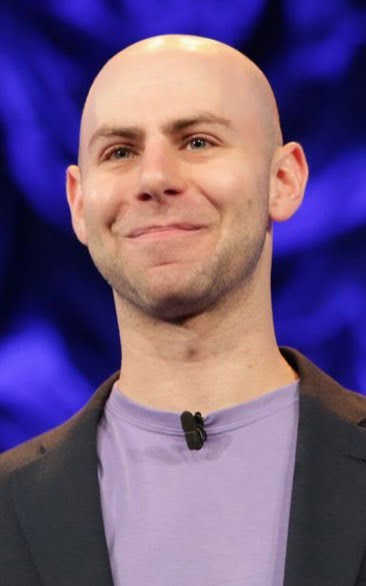

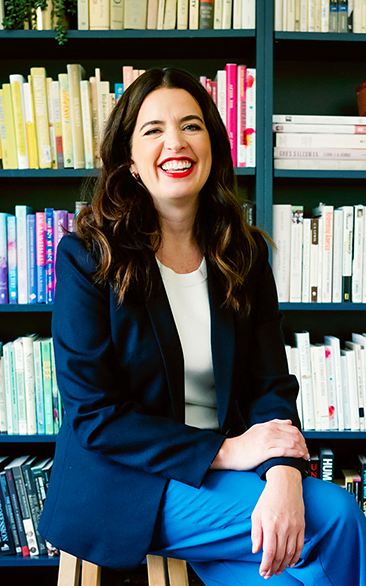


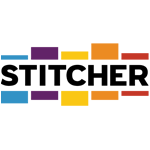





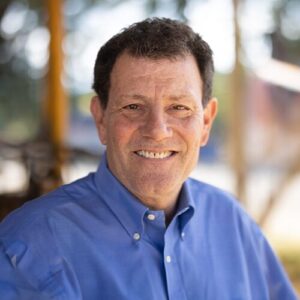
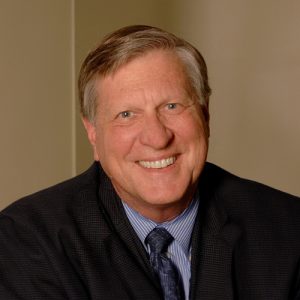

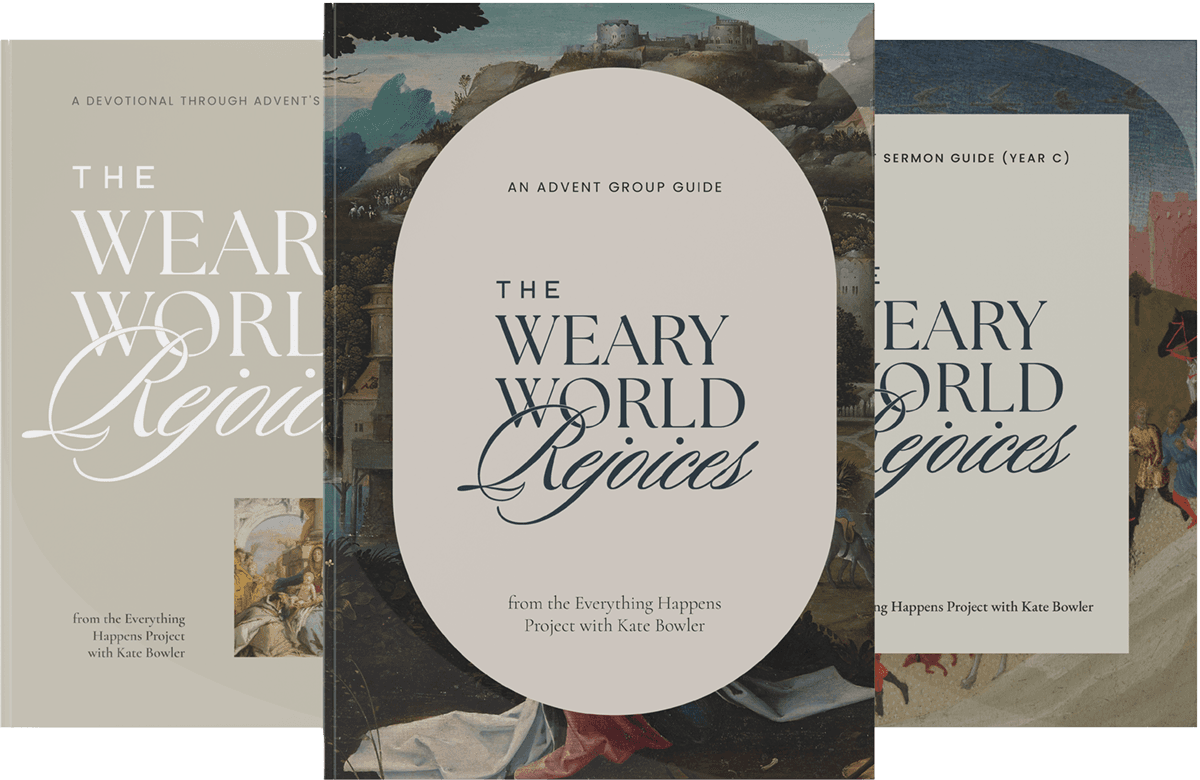
Leave a Reply